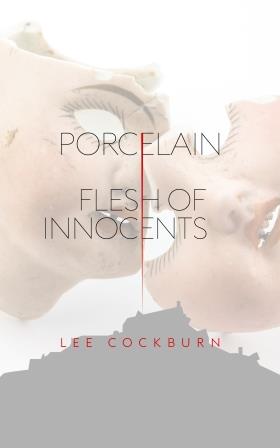
Recently I had the pleasure of reading and reviewing ‘337’ by M. Jonathan Lee.
It’s a fascinating story about Samuel Darte, a man whose life is put on hold by the sudden disappearance of his mother – though it’s about so much more, too. I loved the psychology of this book and thought it was a beautiful read, especially Samuel’s gradually shifting relationships with his ‘Gramma’ and his brother. (It’s no surprise to learn that Lee campaigns on issues related to mental health.)
You can find my review here, but today – publication day – I am delighted to post an interview with Lee which will give you a little peek into his thoughts about ‘337’.
—————————————————————————————-
E. H:
Hi Jonathan. Welcome to Buriedunderbooks and thank you for agreeing to answer my questions about your latest book, ‘337’, which I really enjoyed reading.
You can begin reading ‘337’ from either direction (in the beautiful hardback UK edition published on 30th Sept). What do you feel this adds to the book or to the experience of reading the book?
M. Jonathan Lee:
I think it gives the reader a genuine choice how to approach the story, through the door where everything is light, or through the door of darkness. I also think that in a book where nothing really is what it seems, it is nice to draw the reader into traps right from the start.
E. H:
Fair enough. Your main character, Samuel, has had his life shaped by loss and absence since his teens. His brother, who has experienced the same loss and absence, has reacted in some similar and some very different ways. Did you feel that their differing responses had any connection to their birth order and position within the family unit? Did Samuel, perhaps, already feel a little more distanced from his mother, replaced to some extent by the younger brother who ‘rarely leaves my mother’s side’?
M. Jonathan Lee:
Great, great question. [BIG SMILE] My feeling is that Sam was already beginning to become jealous of his brother before his mother vanished. In later life, Sam feels that he has moved on far more than his brother, who you get the feeling is a useless drug addict. But, their fortunes, in terms of happiness, are very different.
E. H:
That’s exactly the feeling I had, and so Sam meeting Tom was fascinating, especially as my perception of Tom, which had been completely created though Sam’s attitudes, began to shift.
‘337’ begins with a picnic, or more accurately, with a twenty-five year old memory of a picnic. Samuel reflects that, viewed from above, in close proximity to other picnickers, ‘we are perfectly normal in every way.’ In your opinion and experience, is any family “perfectly normal”?
M. Jonathan Lee:
Probably not. I think we view too much of the world by relying on our own initial perceptions of things and trust our brains first thought too quickly. It is a skill (one that needs practicing every day) to take more time to view a person or situation. It is a shame that humans also have a tendency to judge others and to compare their own lives to others too quickly.
E. H:
That makes sense. Certainly, being too fixated on a particular idea leads to serious consequences here.
But how far should we trust this 25 year old memory of the picnic?
M. Jonathan Lee:
As far as I’m concerned it’s a reliable narrative. I can’t see why it wouldn’t be true, can you?
E.H:
No, I can’t, and, actually, I enjoy the way certain nuances are so significant later on; the whole episode works brilliantly to introduce the story and the key characters. Sometimes chapters are like fireworks and you’re dazzled straightaway; other times you find a chapter grows on you over time. Every time I re-read the first chapter it I like it even more.
When writing ‘337’, you set yourself the challenge of writing a story where the final word changed your perception of the whole book. It certainly works, so I can’t resist asking: do you know what your next writing challenge will be?
M. Jonathan Lee:
Thank you. That’s very kind. I certainly loved writing it and completed the manuscript from nought to seventy thousand words in six weeks! Yes, I am on with a further challenge which is to write a never-ending story where it doesn’t matter which page you begin, the story always reads the same and finishes the same and then loops back round to the start again. We’ll see if that works out. If not, I have a few other ideas 🙂
E.H:
Six weeks! I’m not sure I could manage to write that many words in six months, let alone create a story that turned so successfully on the final word.
Thank you for answering my questions and good luck with the never-ending-story challenge. That sounds like a tough one!
———————————————————————————————-
So there you are: you can choose whether to begin in darkness or light, delight in the gradual signs of Samuel’s recovery from long sustained trauma and be ready to have your feelings completely catalysed by the ending of this thoughtful story. Enjoy!
Meanwhile, I plan to investigate Lee’s earlier books, especially ‘The Radio’, which apparently has an equally effective ending and is, ‘A comedy so black that you’d have to eat a lot of carrots to know whether George’s adventures are actually visible.’
‘337’ by M. Jonathan Lee is published today by Hideaway Fall.


